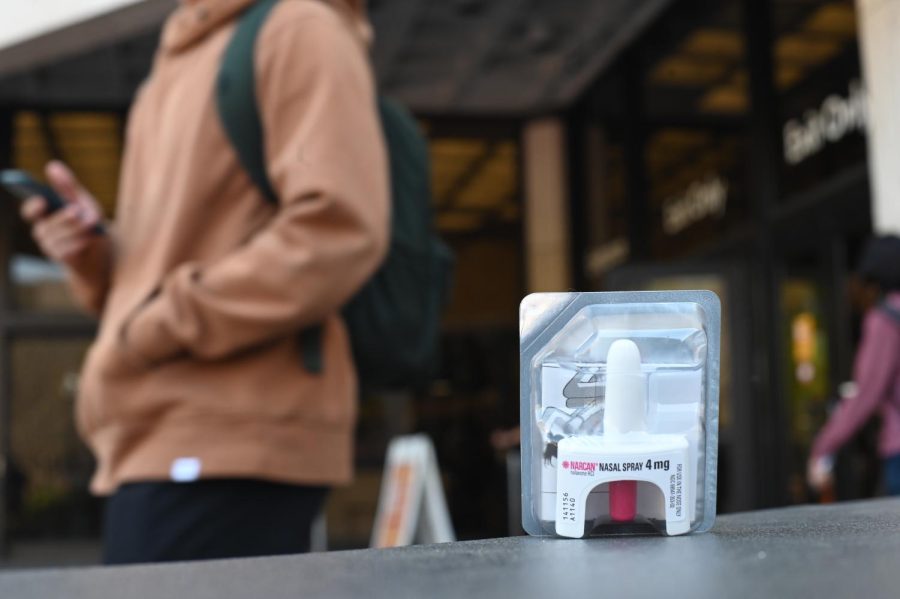Free opioid overdose-reversing drug now accessible in some UT libraries
April 5, 2022
Editor’s Note: This article first appeared in the April 1, 2022 flipbook.
Naloxone, a nasal spray drug that rapidly reverses the effects of an opioid overdose, is now available for people to pick up for free at some libraries around campus following numerous overdoses in the UT community.
Naloxone, also known by the brand name Narcan, is available at the security desk of the Perry-Castañeda Library, the Life Sciences Library and the Benson Library. People picking up naloxone do not need identification.
Claire Zagorski, senior administrative program coordinator and harm reduction instructor in the College of Pharmacy, said the University chose to start distributing naloxone in libraries due to their constant traffic, specifically at the PCL, where many students travel daily. Zagorski said that when developing the distribution plan, the team wanted to take away barriers by guaranteeing that the medication would be free and that no identification would be needed.
“We’d seen that any kind of identifying information will plant a little seed of anxiety in people’s minds,” Zagorski said. “Now you can just walk into the PCL and the Narcan should be there.”
Residence halls started carrying naloxone for emergencies in 2016 when Zagorski’s supervisor noticed numerous overdoses among UT students. Zagorski said the team thinks it was unavailable before 2016 due to student concerns about being reported and therefore kicked out of the residence halls.
Zagorski said it is normal for college students to try new experiences and test boundaries.
“For some of us, that’s picking a major our parents don’t like or piercing our nose,” Zagorski said. “But for some people, it’s something that’s more risky, like trying out drugs.”
Kami Johnston, student director of Operation Naloxone, a student-led organization started in 2016, said naloxone can bring someone who’s overdosed back to consciousness in about two to five minutes.
“We’re already putting it in other libraries, and making it a staple that anyone can access at any time,” pharmacy junior Johnston said. “It’s kind of sad that putting the naloxone in a library on campus is so unique and so new, because it doesn’t cause any harm if you use it incorrectly.”
Johnston said when Operation Naloxone started in 2016, they heard it saved three people’s lives.
“The more pockets we put naloxone in, the more likely someone that’s experiencing an opioid overdose is going to get naloxone when they need it,” Johnston said.
Johnston said naloxone is similar to condoms and seat belts since it makes opioid use safer.
“The whole point is to allow people who choose to use drugs to use them safer,” Johnston said. “We’re not encouraging their use, but we’re recognizing if people choose to use drugs, we want them to do it as safe(ly) as possible.”
If you or anyone you know is experiencing drug addiction, you can seek confidential help by calling the SAMHSA National Helpline at 1-800-662-4357.












